

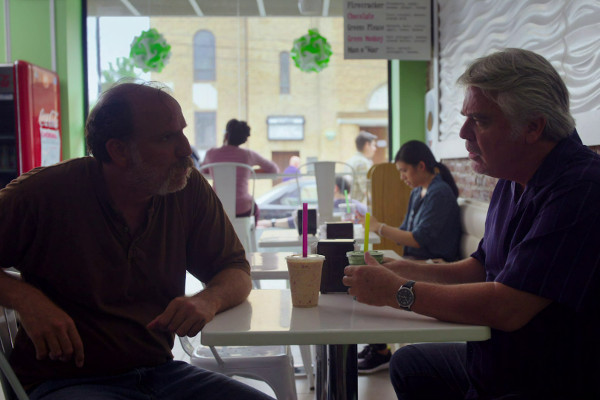
Season six is a lot more realistic than the haphazard season five, though is not without its unbelievable or eccentric moments - a recurring joke with a guard who wants perfect popcorn never comes off, and a mid-episode song montage is an odd stylistic choice. The flashback here features young Black Cindy (played by Abena Mensah-Bonsu) as she struggles with the concept of lying throughout her life. A brief return of Michael J Harney as Sam Healy gives some much-needed cohesion to OITNB's fictional universe, where it had increasingly come to resemble some bizarro Tom and Jerry pocket reality.
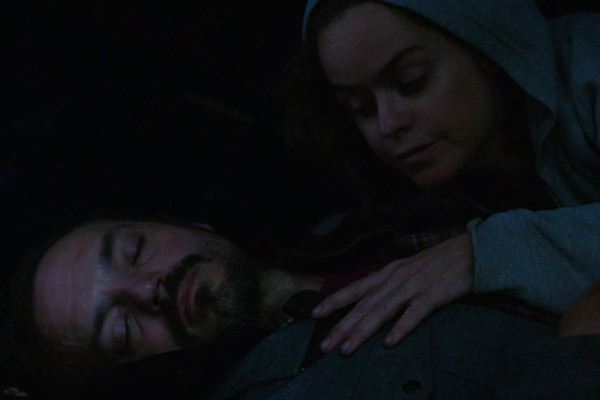
Writer Anthony Natoli was a staff writer on season five, and was credited with the S5 episode Full Bush, Half Snickers. A top five episode in the Anorak Zone's season ranking, this sees Natoli as one of just two season five writers to be retained. In an interview with The New Yorker, series creator Jenji Kohan took the somewhat unusual move of admitting that season five wasn't particularly good, citing some scripts as "fan fiction".
Executive Producer Tara Hermann expanded on this, noting "We had lost a bunch of the original writers. It wasn't anyone's fault. It was just a new dynamic - people were attached to the characters as viewers, not as creators." Natoli misses out on the top five this time (and with his other season six script, Well This Took a Dark Turn) but crafts here a light but rewarding tale as a series of pranks undermine the prison structure. Less light-hearted is the problematical relationship between Coates and Pennsatucky, which is at least brought to an end here.
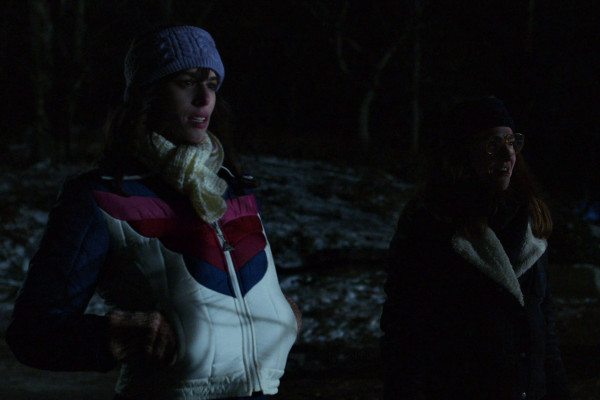
Carolina Paiz was the second of two writers carried over from season five. A producer during the fifth season, she was credited with writing the first and second ranked entries on the site's season five review. This episode isn't quite up there, but does have the disadvantage that it's in a much stronger season without a truly bad episode in the bunch.
Whereas earlier seasons had worn their subtexts on their sleeves, season six is more concerned with the fictional plots, and so overt references to #MeToo and #FakeNews here seem clumsy and ham-fisted, to say nothing of trivialising both issues. (This is particularly hard to bear, as one of the characters trivialising such issues is Lorna, played by Yael Stone, who recently conducted an interview saying how important the #MeToo movement was).
The two sister villains at the heart of the season's plot get a backstory, which does serve to undermine them somewhat... whereas their modern-day selves are presented as relatively benign presences, certainly compared to the likes of Vee, their past selves murdered their own sister for a psychotic thrill. It forces two fairly developed characters back into two dimensions.
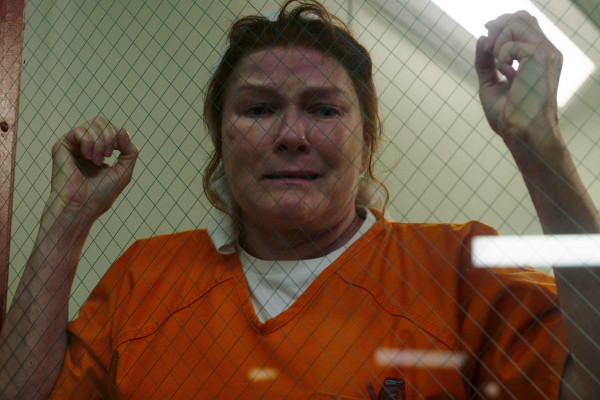
There is a feeling that Orange is the New Black used to be cleverer and more intricately plotted during its first two seasons. Inmates and guards alike used to engage in virtual chess matches, manipulating events and each other, with developments that were often thrilling. In contrast, later seasons have seen contrivance and plot short cuts become the order of the day, characters often completely rewritten to fit the plots. It still remains one of the best programmes currently on TV, but from 2013-2014 it was something incredibly special. This said, I'm The Talking Ass is one of the more tragic instalments, an episode where Red finally realises she has to let her friends betray her for their own best interests.
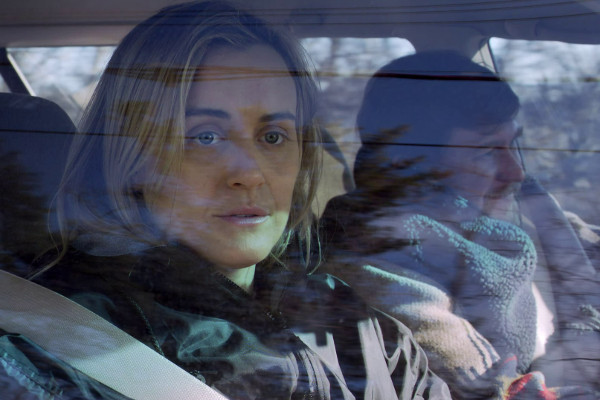
Orange is the New Black finishes one of its stronger post-prime seasons with an episode that discards real danger and instead gives us on-the-nose marriage vows and political commentary. Although the revelation of an immigrant detention that traps Blanca is a nice play on current political events and once more exploring Piper's white privilege, the political allusions in OITNB continue to miss the "sub" in subtext.
For a season that repeatedly used song montages in addition to its ironic closing titles song choices, this one overloads the mix, placing in three tracks during the episode and then closing to silence. Using songs within the episodes isn't really something that works tonally, and is, at least here, something of a distraction.
This feature-length (85 minute) finale sees Piper get an early release, some hard developments for Taystee and the exit of two promising new characters. The show's sense of skewed justice and misplaced karmic balance is again in check, though without the power it once held.
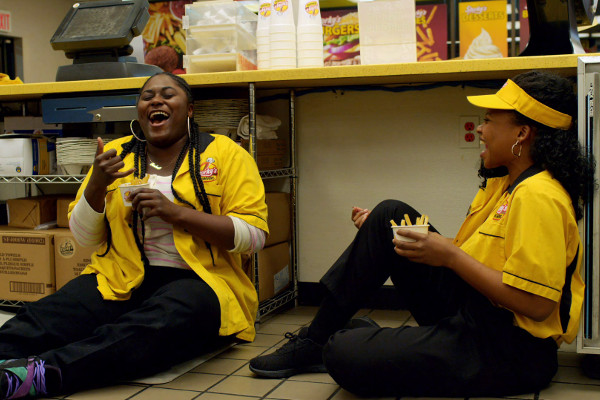
The flashback story here is with fan favourite Taystee, who gets a new "old friend" in the form of Tamika, a prison guard. Inserting previously unheard of "old friends" into a character's life can be a risky venture in a long-running show... Vee wasn't so much of a stretch as that was back in season two, but here, after five years, we get all-new youthful adventures.
Thankfully the chemistry between Danielle Brooks and newcomer Susan Heyward works and papers over the cracks. Besides which, given that Tastee is - if we're assuming all the characters are the approximate age of the performers - in her late 20s, it makes sense we don't know all about her just yet.
The flashback is arguably the most substantial of the season, in a programme that's increasingly outgrowing the need for them. While the first episode's flashback only takes us back to events during season five, and the final one has a very brief flashback sequence, less of a "story", it's only actually four of the episodes that don't feature them. Given that it seems like far more, it illustrates how inconsequential and unmemorable this element of the series is becoming, whereas it was once a highlight. Overall, this is a strong episode, the only downside being the "beating" of Daya by inmates, with a "knee to the ribs" that clearly misses her by several inches.
Susan Heyward (Tamika) contributes to a commentary track for the episode, alongside Laura Gómez (Blanca Flores) and the writer and director. As with the season finale (which features a commentary track from a giggly Nick Sandow, along with that episode's writer Brian Chamberlayne) the Orange is the New Black commentaries aren't essential or particularly enlightening, but they're a pleasant, easy listen.
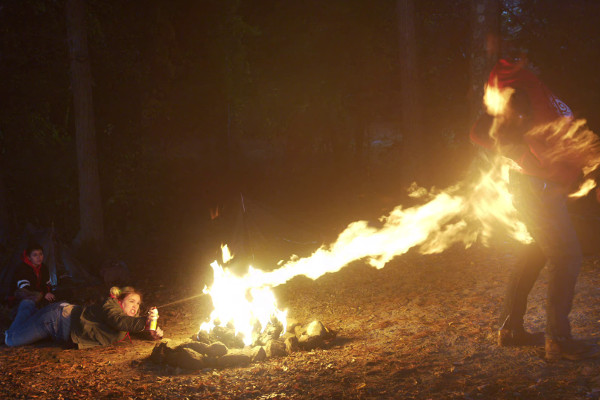
Season six introduces a lot of new characters, and it's always hard to introduce new cast members and have them make an impact, especially this late into a programme's run. Adeola (Sipiwe Moyo) is an obvious example of a new character that does work, even if she's not quite as funny as the writers evidently believe she is, and Badison has presence. Actress Amanda Fuller's "Boston" accent has come in for much criticism online, but it didn't personally detract here at The Anorak Zone... not because the Boston accent is less familiar over here in the UK, but because I didn't even realise she was trying to do one.
Badison's need to be accepted forms the basis of the flashback sequences, as actress Amanda Fuller is almost successful in de-ageing the required 15 or so years to play herself as a teenage delinquent. The events, as pictured, can be a little cartoony, and while the sixth season gets back a lot of promise, it still suffers from odd plot mechanics and character motivations.
Perhaps the biggest flaw which makes this arguably an odd choice for the top-ranked episode is more weak shot continuity, which blighted much of season five. While nowhere near as bad as in 2017, here a two-handed scene where Piper and Alex look at a magazine quiz together sees much changing of head position during intershots, and some clear post-dubbing in the scene where Badison is showering. Those who watch the series for its somewhat exploitative nudity may enjoy the chance to see Fuller's character disrobed and attempting to flirt with Alex.